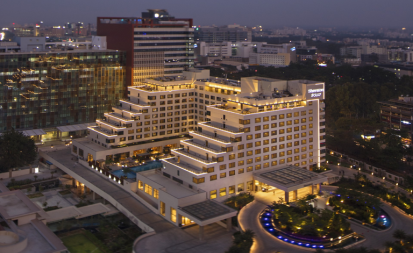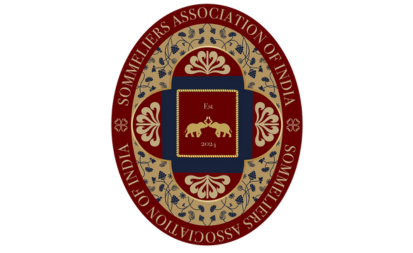Breaking Down Barriers: Gen Z’s Resistance to Hospitality Careers
Authored article by Dr. Anant Kumar Verma & Dr. K G Sofi Dinesh A significant trend in the hospitality business is Generation Z's increasing reluctance to seek employment in the industry. Despite the variety of opportunities

Authored article by Dr. Anant Kumar Verma & Dr. K G Sofi Dinesh
A significant trend in the hospitality business is Generation Z’s increasing reluctance to seek employment in the industry. Despite the variety of opportunities available, many Generation Z workers are departing the industry due to discontent with income and workload. The COVID-19 epidemic has intensified employment uncertainty, causing Gen Z workers to reevaluate their professional options in search of better stability and progress. To recruit and retain Gen Z talent, hospitality organisations must offer competitive pay and treat interns with respect.
A noteworthy trend has surfaced in the hospitality sector in recent years: people from Generation Z, who are renowned for their creative thinking and proficiency with digital platforms, are choosing not to pursue employment in this field with increasing frequency. Notwithstanding the hotel industry’s well-established reputation for providing a wide range of experiences and possibilities, data indicates that an increasing proportion of Gen Z workers are choosing to pursue careers in other fields. (Andreas, Walmsley et al, 2020; Athens Journal of Tourism, 2022). This shift in preferences raises legitimate concerns about the industry’s capacity to attract and retain talent from this group. It is critical for the hotel sector to overcome unfavourable attitudes and promote the opportunities it provides in collaboration with educational partners. While Generation Z may have good leadership skills and technology expertise, they may want to pursue an entrepreneurial career in the tourist sector rather than typical corporate positions. Workaholism’s influence on burnout and turnover intent varies by generation, with Generation Z having a higher negative connection. Delving further into the underlying causes of this trend reveals crucial insights into the changing dynamics of both Generation Z and the hospitality industry.
In the fast-paced world of hospitality, the arrival of Generation Z employees ushers in a new age of workplace dynamics and expectations. Gen Zers, who grew up in a digitally driven world, are differentiated by their computer skills, entrepreneurial zeal, and specific a job choices. Despite the industry’s long-standing reputation for providing a wide range of options and experiences, an increasing percentage of Generation Z workers are turning away from jobs in hospitality. As more Generation Z employees enter the hospitality business, there is a distinct shift in workplace behaviours and expectations. Unlike their predecessors, Generation Z employees value flexibility, autonomy, and meaningful work experiences. They look for possibilities for growth, lifelong learning, and professional progression in their chosen sector. They also prioritise work-life balance and freely discuss workplace stress and burnout.
One of the most noticeable trends among Gen Z employees in the hospitality business is their desire for greater pay. Despite their passion for their careers, many Generation Z employees struggle with the industry’s tough workloads and high expectations. As a result, people are increasingly choosing to abandon the hotel sector in favour of more lucrative retail opportunities. According to research, a substantial number of Gen Z employees mention poor salary as a crucial factor in their choice to leave hospitality professions (Li-Chang, Lee et al., 2023). The demanding nature of hospitality jobs, along with relatively low pay, poor treatment during their internships makes it difficult for Gen Z employees to prosper (Ek, Tee et al., 2022). As a result, many feel underappreciated and financially burdened, forcing them to seek different job possibilities.
Furthermore, the COVID-19 epidemic has further exacerbated these issues, leaving hospitality workers with employment instability, lower hours, and increased obligations. As the sector deals with the fallout from the epidemic, Gen Z employees are reconsidering their career options and looking for jobs that provide better financial stability and development potential. The pandemic’s extensive impact led in severe employment losses among hospitality professionals, causing both professional and emotional suffering. Many people returned to their hometowns at this time, motivated by fears about their safety, familial duties, and the desire for support networks during difficult times. In addition, uncertainty about the hotel sector’s comeback and employment availability caused a substantial number of employees to ponder returning to the hospitality industry.
This upheaval, marked by job loss and uncertainty, has caused enormous worry among hospitality sector employees, resulting in a noticeable shift in their career preferences. Specifically, the volatility caused by these issues has pushed many people to consider different job choices that offer better stability and security. This transition is demonstrated by a significant drop in enrollment in hospitality and hotel management programmes in India, as well as a vacancy rate of more than 50% at hospitality institutions over the last three years.
The decrease in enrollment in hospitality programmes can be related to the industry’s current uncertainties and challenges, which are exacerbated by the temptation of more lucrative prospects in other industries. As the hotel industry deals with the aftermath of the epidemic, prospective students may see it as less dependable and financially lucrative than other vocations. Likewise, the availability of other career options in technology, finance, and healthcare, which provide competitive pay and perceived job stability, frequently discourages students from pursuing hospitality degrees. This move mirrors a larger trend in which people are driven to businesses that they believe will provide more stability and development potential in the face of persistent economic instability.
Several reasons contribute to Generation Z’s present leaning away from hospitality as a professional path. Monetary concerns such as income, bonuses, and corporate reputation have a major effect on career selection choices among Generation Z students studying hotel management. (Ek et al., 2022; Retius, 2023). The driving elements that influence Gen Z’s choice of hospitality employers are directly related to qualities, perks, and personal values, which include psychological, developmental, and social components (Grzegorz et al., 2022). However, Generation Z is concerned about job paths, growth prospects, and the pay and circumstances provided by the industry (Chaudhary & Jha, 2021). Additionally, unfavourable experiences during hotel internships contribute to students’ decisions to follow other routes. (Sonbai & Le, 2011).
The purpose of the paper described in the text is to study a growing trend among Generation Z individuals who are increasingly choosing not to pursue employment in the hospitality business. This trend has been established through study findings and observations, demonstrating a significant movement in job preferences away from hospitality among Generation Z workers. There are various factors which are collectively responsible for the Gen Z to move out of Hospitality career.
Work-Life Balance & Employee Well-Being
The demanding nature of hospitality professions goes against Gen Z’s emphasis on work-life balance. The hotel sector is known for its long working hours and high levels of stress, which can put physical and emotional strain on employees (Natalia et. al, 2022). According to Grzegorz Kapuściński, Nathan Zhang, and Rachel Wang (2022), the imbalance between personal and work life might have a detrimental influence on employee well-being. Gen Z, who grew up in a digitalized virtual world, has distinct expectations of the work environment and prioritizes work-life balance. (Amrita Hari. A, Aneesha Chaudhury, Dr. S Premlatha, 2022). However, the hotel industry’s traditional methods to human resource management may not meet Gen Z’s expectations (Maike Nuyken, Doron Zilbershtein, & Abdul Rauf, 2023). To recruit and engage Generation Z employees, hospitality businesses must understand their motivating systems and customise their value proposition accordingly(Gamze Utar, Senem Yazici , 2022). In addition, workaholism among hotel employees, notably Generation Z, has been linked to increased burnout and intention to leave (Hyo-Sun Jung, Yoon-Sik Jung, and Hye-Hyun Yoon, 2023). Employers may make their workplaces more appealing to Gen Z employees by addressing work-life balance problems and employing new tactics such as gamification.
To properly handle these difficulties, the hotel sector must change its operating methods to meet Generation Z’s expectations. This includes developing disciplined work schedules, providing competitive compensation packages, supporting substantial training programmes, and setting clear paths for professional advancement. Concurrently, programmes focused at increasing employee engagement, along with severe steps to eliminate workplace harassment and promote inclusion through language regulations, are critical in creating a working climate that aligns with Generation Z’s values and preferences.
Job Security and Advancement:
The apparent absence of job stability and restricted career growth options in entry-level employment discourage Gen Z from pursuing professions in the hospitality business. According to Istiqomah and Bustami’s research, job insecurity during the COVID-19 pandemic had a negative impact on work engagement among hospitality employees, emphasising the significance of job security in motivating employees. (Laila et al, 2023). In addition, Abbas recognised senior management’s lack of knowledge of the challenges experienced by female workers in public relations as a key barrier to job security in lodging establishments
(Sulaymaniyah et al, 2022). Maqableh et al. found that work satisfaction moderated the association among job security and turnover intention amongst frontline staff in Jordanian hotels, emphasizing the importance of job security in retaining personnel(Omar Maqableh, Abdullah Helalat, Che Supian Mohammad Nor, 2022). Xiao and Amir’s research demonstrated that job security significantly improved the job efficiency of grassroots employees in high-star hotels, emphasising the significance of job security in the hospitality business ( Xiao et. al 2022). These findings indicate that resolving job security issues and giving opportunities for promotion are critical in luring Generation Z to the hospitality business.
Diverse, Inclusive, and Eco-Conscious:
Generation Z (Gen Z) has demonstrated a significant preference for social and environmental conscience. They display ecologically responsible behaviour and are highly concerned about environmental concerns. Social pressure, social media, and the COVID-19 epidemic all had an impact on their environmental beliefs and behavioural intentions. (Schönherr et. al. 2023)
The hotel business confronts difficulty in hiring Generation Z personnel owing to diversity and inclusion concerns (Lindsey Lee, Heyao Yu, 2023). According to studies, there are unfavourable stereotypes about the business, which might dissuade people from seeking employment in hospitality (Choudhury et. al,2021)( Walmsley et al, 2020). Generation Z’s employment options are also influenced by their social class background and family expectations. Those from higher social classes are less likely to pick hospitality as a career. (Ngian et. al, 2022). However, providing management roles can mitigate the harmful impact of social class background (Kapuściński et al., 2022). Concerns regarding advancement chances, career trajectories, and industry compensation and conditions all contribute to Generation Z’s reticence to choose hospitality employment. To solve these difficulties, the industry must foster a more inclusive culture, increase recruiting efforts, and publicise the possibilities available in the hospitality business.
Diversity and inclusion present substantial obstacles in the dynamic business of hospitality, creating barriers for the next generation of talent, Generation Z. With a strong emphasis on inclusion, Gen Z members are discouraged by the industry’s lack of diverse leadership presence, indicating restricted chances for progress for people from all backgrounds. The lack of accessible role models stifles Gen Z’s professional ambitions, reducing the appeal of hospitality jobs. In addition, persistent discrepancies in job advancement based on gender, colour, or ethnicity raise questions about the industry’s commitment to equitable growth, maintaining the myth of an unbreakable glass ceiling. An unwelcoming organisational culture, combined with insufficient diversity measures, further alienates Generation Z, leading them to industries viewed as more inclusive. Disparities in remuneration and perks accentuate these inequities, indicating a lack of justice in the hospitality industry. Discrimination and cultural insensitivity compound the industry’s declining popularity. To solve these concerns, the hotel industry must prioritise strong diversity and inclusion policies while also cultivating an atmosphere that reflects Gen Z ideals. By promoting fairness, inclusion, and cultural awareness, the sector can recruit and retain diverse talent, paving the path for a more sustainable future.
Compensation and Benefits
In terms of employment choices, Generation Z (Gen Z) frequently avoids hospitality positions due to significant dissatisfaction with the given wage and benefits. Unlike other businesses, the hotel industry often falls short in terms of pay and perks, failing to meet Gen Z’s aspirations for financial security and work satisfaction. In addition, the hard nature of hospitality work, along with restricted opportunities for advancement, exacerbates the perceived lack of remuneration. Gen Z, known for their preference for instant gratification and a balanced work-life equation, seeks roles that offer competitive pay, comprehensive benefits, and opportunities for professional advancement – qualities that are frequently missing in the conventional landscape of the hospitality industry.
The majority of hotels pay young graduates the minimum salary set by the government. Generation Z employees are abandoning the hospitality business because of poor earnings and restricted benefits. (Lindsey Lee, Heyao Yu, 2023) (Kapuściński, et. al, 2022). Research has indicated that unfavourable impressions of the hospitality business, particularly lesser social status compared to other industries, might discourage Generation Z from selecting professions in hospitality. (Sigaeva et al., 2022). Moreover, the study on the job selection preferences of final-year hotel management students discovered that income and perks have a considerable beneficial influence on job selection preferences. (Godwin-Charles Ogbeide , 2022). These findings imply that low pay and restricted benefits in the hospitality business might have an influence on Generation Z employees’ career choices and preferred jobs.
India’s hospitality industry is suffering a substantial skills deficit, worsened by a post-pandemic surge in demand, which may result in understaffed hotels. Inadequate pay and poor working
conditions contribute to high turnover rates. Despite several hotels’ ambitious expansion plans, including international ones, a lack of skilled labour remains a major challenge. There is a substantial gap between industry need and available talent, with degree courses only filling less than half of their seats at these career-oriented universities. As impediments persist due to issues such as inadequate wages and working conditions, industry leaders must take fast action, highlighting the need of fair compensation and motivating personnel for long-term success.(Chaturvedi, 2024)
Social Class Background, family expectations, Remote work and Gig Economy
The combination of social class background, family expectations, and the advent of remote employment and gig economy tendencies together discourage Gen Z from entering the hospitality business. Individuals from rich homes are often urged to seek occupations thought to be prestigious or financially advantageous. According to research, Generation Z employees have negative impressions of the hotel business, believing it to have lesser social standing than other industries. (Lee, L. and Yu, H. 2023). Moreover, the study discovered that social class background and family expectations have a role in job selections among Generation Z, having a negative influence on intentions to pick the hospitality business as a career. (Kapuściński, G., Zhang, N., & Wang, R. 2023). Hospitality jobs may be viewed as less attractive owing to a perceived lower social position and income potential. Furthermore, familial expectations, particularly in societies that value established career routes, may drive Generation Z to choose sectors viewed as more secure or prestigious, discouraging them from adopting hospitality employment. The increasing availability of remote work and gig economy options gives Gen Z with alternatives that offer flexibility, autonomy, and possibly better incomes, making the regimented, demanding character of hospitality positions less enticing. As Gen Z prioritizes work-life balance and seeks opportunities for self-employment or remote work, the traditional constraints of hospitality industry roles may appear less compatible with their lifestyle preferences and career aspirations, ultimately discouraging their entry into the field.
Technology Expectations
Gen Z’s innate technological savvy makes them more sensitive to the perceived outdatedness of traditional components of the hospitality sector. Raised in a period of rapid technical breakthroughs, Generation Z is naturally drawn to creative solutions and flawless digital
experiences. As a result, they may regard traditional hospitality approaches, such as manual check-in, paper-based systems, or limited internet contact, as antiquated and inefficient. The reliance on in-person contacts or phone calls for bookings, queries, and customer service contrasts with Generation Z’s penchant for immediate, digital communication methods. In addition, the lack of personalised digital experiences or the incorporation of cutting-edge technology such as AI-powered chatbots or mobile applications may discourage Gen Z from connecting with hospitality organisations. As a result, the sector risks alienating this tech-savvy generation by failing to meet their digital expectations, perhaps losing out on a large segment of consumers and prospective workers.
Their strong dependence on self-service technology and inclination for ease and promptness may conflict with the personable service part of the hospitality sector. (Godwin-Charles Ogbeide, 2022). The increasing popularity of service robots in hotels may possibly replace human employees, leading to concerns about job security and the intention to leave among Gen Z employees (Yu, H., Shum, C., Alcorn, M., Sun, J. and He, Z. 2022). In addition, Generation Z’s disruptive behaviour, encouraged by their heavy use of social media platforms and dependence on travel influencers, may upset established travel habits and expectations in the business. (Vancia et. al.2023 ). Finally, established approaches to human resource management in hotels may need to modify to match Gen Z’s expectations, resulting in the employment of new tactics such as gamification software. (Gamze UTAR, Senem YAZICI, 2022).
Generation Z, born between the mid-1990s and early 2010s, is making their imprint on the workforce with unique attitudes and behaviours that are redefining the landscape of professional goals. This generation, nurtured in an era of fast technical innovation and cultural change, views job selections with a complex viewpoint that reflects a combination of traditional values and modern influences.
The changing economic situation is a crucial element behind Generation Z’s adjustment in employment choices. Unlike past generations, who may have prioritised employment security and long-term career possibilities, Generation Z is entering the workforce during a period of economic instability and fast technological upheaval. As a result, they are more likely to prioritise financial security and stability, preferring positions with competitive pay and extensive benefits packages. With the growing cost of living and student loan debt, Generation Z understands the need of financial stability in reaching long-term objectives like housing and retirement.
The growth of social media and digital platforms has provided Generation Z with a broader choice of professional possibilities and prospects. This generation is more aware and connected than ever before, allowing them to pursue a variety of job choices and make sound decisions about their future. As a result, Gen Zers are more inclined to prioritise personal fulfilment and value alignment in their work decisions. They look for companies who share their values and are dedicated to social responsibility, environmental sustainability, and diversity and inclusion. This emphasis on personal beliefs demonstrates a desire for authenticity and meaning in their job, rather than merely earning a living.
COVID-19 epidemic has had a significant influence on the job priorities of Generation Z. The epidemic pushed many people to reconsider their career objectives and aspirations in the face of unexpected problems including job loss, remote employment, and economic instability. As a result, Gen Z is prioritising work-life balance, flexibility, and remote work opportunities in their employment selections. They prioritise companies who provide modern work arrangements and care for their well-being, allowing them to strike a good balance between their professional and personal life.
One of the most difficult obstacles in luring Generation Z to the hospitality sector is dealing with their changing employment preferences and objectives. Unlike earlier generations, Gen Z people prioritise work-life balance, professional progression prospects, and alignment with personal values in their employment selections (David, Co et.al., 2023). Hospitality firms may overcome the difficulty of attracting and retaining talent by emphasising the industry’s numerous career pathways and prospects for advancement. Employers may recruit Generation Z individuals from varied social class backgrounds by emphasising the social status of hospitality employment and providing management opportunities (Lee-Chang, Li 2023). In addition, using a collaborative and strategic approach via industry talent branding may help broaden the talent pool accessible to organisations and address long-standing talent difficulties (Ashokkumar, Manoharan, 2023). Managing culturally diverse people in the hospitality business is critical. Organisations may profit from knowing the cultural mix of their workforce and using diversity management techniques (Mennatullah, Alaa-Eldeen et al, 2022). Finally, giving career advancement possibilities such as career goal progression, professional skill development, promotion speed, and pay growth helps minimise turnover intention and retain skilled individuals in the hotel business. (Folakemi, Ohunakin et. al. 2018). Employers can relate to Gen Z’s need for personal fulfilment and professional success by emphasising opportunities for promotion, continual training and development, and the possibility to make a significant difference.
The hotel business has to combat perceptions of poor wages and job stability (Gwan’gwang le’jeo yeon’gu, 2022). Efforts should be made to improve the quality of jobs in the sector, as well as to assess the requirement and importance of associated policies to increase job quality (Susana, Cro et al. 2020). Hospitality management should take steps to give better levels of real and perceived security to visitors, since this would boost profitability (Shelagh, Mooney 2019). The sector has significant staff turnover and low social status occupations that provide limited opportunity for self-development and full potential (Nazanin, Naderiadib, et al., 2020). Job instability impairs the link between perceived employability and job engagement in the hospitality business. Employers in the hospitality industry can address these stereotypes by providing competitive pay, extensive benefit packages, and possibilities for promotion. Employers can recruit and keep top Gen Z talent by investing in their employees and creating a supportive work environment.
Moreover, the hotel business must adapt to Gen Z’s evolving preferences and expectations for workplace culture and technology. This generation loves work environments that are flexible, autonomous, and innovative. Hospitality firms may use technology to streamline operations, improve the guest experience, and create a more efficient and engaging workplace. Recent investments in automation and AI have altered the hotel business, with an emphasis on algorithmic management solutions. (Fan, Cheong et al., 2023). However, it is critical to examine the impact of technology adoption on non-management stakeholders and to encourage worker involvement throughout the technology implementation process (Smart Hospitality, 2022). The literature also emphasises the importance of big data, customer experience, and collaboration between academic institutions and business firms in the hotel industry. Smart hotels have demonstrated advantages in the tourist industry, offering precise and timely service delivery. Employers may match Gen Z employees’ expectations by adopting digital tools and platforms, as well as providing a contemporary and dynamic workplace.
Moreover, the hotel business may overcome the difficulty of wooing Generation Z by prioritising diversity, equality, and inclusion efforts. Gen Z supports diversity and social responsibility in the workplace. Employers in the hospitality industry may demonstrate their commitment to these principles by establishing inclusive hiring procedures, encouraging diversity in leadership roles, and supporting activities that promote fairness and social justice (Li-Chang, Lee, 2023). This is
significant since Generation Z employees have specific employment expectations and desire fulfilment, meaning, and a higher quality of life (Alexandra, Zbuchea et al., 2023). They are also socially conscious and interested in global concerns (Fulfilling Generation Z’s Needs and Expectations in Industry, 2023). By extending organisational diversity beyond traditional demographics and including social class background as a factor of diversity, the hotel sector may develop a more inclusive culture and improve recruitment and attraction efforts (George, Thomas, 2022). Moreover, organisations should adapt to Gen Z employees’ unique viewpoints and aspirations in order to establish a work environment that meets their expectations and promotes long-term retention. Promoting corporate social responsibility can help Gen Z clients see a green image of the firm, leading to favourable responses such as willingness to pay a higher price. Employers can recruit and keep top talent from Generation Z by developing a diverse and inclusive workplace culture that fosters a sense of belonging and empowerment.
As the hotel business evolves in response to shifting demographics and customer tastes, hospitality companies must proactively address the problems and possibilities given by Generation Z. As this generational group enters the workforce in greater numbers, hospitality businesses must change their tactics to recruit and retain top talent while also cultivating a flourishing and inclusive workplace environment. To effectively engage Generation Z in the hospitality business, companies must first understand the generation’s distinct characteristics and interests. In making employment options, Generation Z prioritises personal fulfilment, work-life balance, opportunity for progress, and alignment with personal beliefs. Hospitality businesses may cater to these desires by emphasising the industry’s numerous career pathways and prospects for advancement. Employers can illustrate the value proposition of working in hospitality to Generation Z by emphasising the opportunities for professional growth, continual training and development, and the possibility to have a significant difference.
Moreover, hospitality businesses must confront misconceptions about the industry’s poor compensation and lack of job security. While hospitality jobs are sometimes associated with entry-level professions and low pay, the business provides a diverse range of professional prospects across all sectors. Employers in the hospitality industry may combat these stereotypes by providing competitive pay, extensive benefit packages, and possibilities for promotion. Employers can recruit and keep top Generation Z talent by investing in their employees and offering a positive work environment.
In addition, the hotel business must adapt to Generation Z’s evolving preferences and expectations for workplace culture and technology. This generation loves work environments that are flexible, autonomous, and innovative. Hospitality firms may use technology to streamline operations, improve the visitor experience, and create a more efficient and engaging workplace. Employers who embrace digital tools and platforms may match Generation Z employees’ expectations while also providing a modern and dynamic work environment.
The hotel business can address the difficulty of wooing Generation Z by prioritising diversity, equality, and inclusion efforts. Generation Z values diversity and social responsibility in the workplace, and hospitality employers can show their commitment to these values by implementing inclusive hiring practices, encouraging diversity in leadership positions, and supporting initiatives that promote equity and social justice. Employers can recruit and keep top talent from Generation Z by developing a diverse and inclusive workplace culture that fosters a sense of belonging and empowerment.
Attracting Generation Z to the hospitality sector necessitates a proactive approach that considers their changing employment preferences and goals. By emphasising professional progression possibilities, giving competitive compensation and benefits, embracing technology, and encouraging diversity and inclusion, hospitality businesses may overcome the hurdles of recruiting and maintaining top talent from Generation Z. By investing in their workforce and fostering a friendly and inclusive work environment, the hotel sector can effectively engage the next generation of hospitality professionals while also ensuring a vibrant workforce for years.
It is clear that the hospitality sector needs to grow to satisfy Generation Z’s wants and expectations in order to remain competitive in the current market. By accepting these tips and taking proactive actions to recruit and retain top Generation Z talent, hospitality businesses can position themselves for long-term success. Together, we can create a thriving and inclusive hospitality sector that values diversity, innovation, and quality.
Looking Forward…
Although there are above points to be pondered upon, but looking forward, the immediate need of the hour for the hospitality industry is to prioritize addressing key concerns related to wages and internships to effectively engage Generation Z and foster a thriving workforceWages are one key problem that has to be addressed immediately. While state governments establish minimum wage regulations, hospitality firms must provide compensation much greater than the statutory minimum for entry-level positions. Generation Z, like previous generations, values financial security and stability in their jobs. Hospitality firms can recruit and keep top talent from this group by paying wages that are both competitive with the cost of living and represent the value of their job.
Moreover, the handling of interns in the hospitality business is of critical importance. Internships are excellent learning opportunities for people considering careers in hospitality, since they provide hands-on training and exposure to numerous parts of the industry. However, there is a common criticism that interns are exploited as cheap labour rather than trainees. To solve this issue, hospitality enterprises must ensure that interns are treated with decency and respect while also providing relevant learning opportunities. It is critical to distinguish between interns and permanent workers, with interns given adequate supervision, training, and mentorship to help them advance professionally.
During internships, hotels have the option to offer at least 50% of the state government’s minimum wage guidelines. While internships are designed to give significant learning opportunities, it is critical to recognise interns’ achievements and reward them properly for their efforts. Hotels when opts for the above stipend during internships can demonstrate their commitment to supporting the growth and development of future hospitality professionals, which could be part of a motivating factor as well.
Looking forward, the hospitality sector must take proactive measures to address these concerns and establish a more inclusive and supportive work environment for Generation Z. Hospitality firms may recruit and retain top talent from this group by paying competitive rates above the minimum wage, treating interns with decency and respect, and providing relevant learning opportunities during internships. Likewise, investing in employees’ professional growth and well-being, regardless of their career level, will help to ensure a vibrant and sustainable workforce in the hospitality sector.
—
 English
English French
French German
German Italian
Italian




